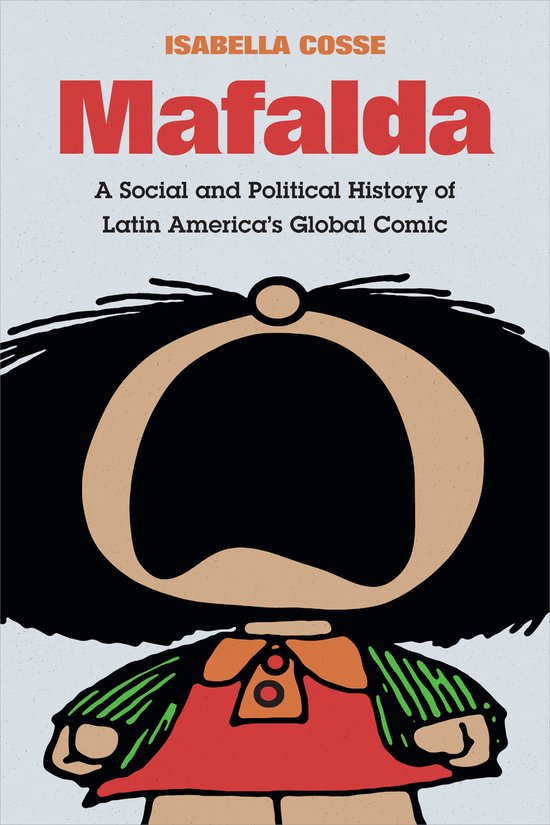
Mafalda
In Mafalda: A Social and Political History of Latin America's Global Comic Isabella Cosse examines the history, political commentary, and influence of the world-famous comic character Mafalda from her Argentine origins in 1964 to her global reach in the 1990s.
Since its creation in 1964, readers from all over the world have loved the comic Mafalda, primarily because of the sharp wit and rebellious nature of its title character—a four-year-old girl who is wise beyond her years. Through Mafalda, Argentine cartoonist Joaquín Salvador Lavado explores complex questions about class identity, modernization, and state violence. In Mafalda: A Social and Political History of Latin America's Global Comic—first published in Argentina in 2014 and appearing here in English for the first time—Isabella Cosse analyzes the comic's vast appeal across multiple generations. From Mafalda breaking the fourth wall to speak directly to readers to express her opposition to the 1966 Argentine coup, to Spanish students' protest signs bearing her face, to the comic's cult status in Korea, Cosse provides insights into the cartoon's production, circulation, and incorporation into social and political conversations. Analyzing how Mafalda reflects generational conflicts, gender, modernization, the Cold War, authoritarianism, neoliberalism, and much more, Cosse demonstrates the unexpected power of humor to shape revolution and resistance.
Since its creation in 1964, readers from all over the world have loved the comic Mafalda, primarily because of the sharp wit and rebellious nature of its title character—a four-year-old girl who is wise beyond her years. Through Mafalda, Argentine cartoonist Joaquín Salvador Lavado explores complex questions about class identity, modernization, and state violence. In Mafalda: A Social and Political History of Latin America's Global Comic—first published in Argentina in 2014 and appearing here in English for the first time—Isabella Cosse analyzes the comic's vast appeal across multiple generations. From Mafalda breaking the fourth wall to speak directly to readers to express her opposition to the 1966 Argentine coup, to Spanish students' protest signs bearing her face, to the comic's cult status in Korea, Cosse provides insights into the cartoon's production, circulation, and incorporation into social and political conversations. Analyzing how Mafalda reflects generational conflicts, gender, modernization, the Cold War, authoritarianism, neoliberalism, and much more, Cosse demonstrates the unexpected power of humor to shape revolution and resistance.
| Auteur | | Isabella Cosse |
| Taal | | Engels |
| Type | | Hardcover |
| Categorie | | Mens & Maatschappij |